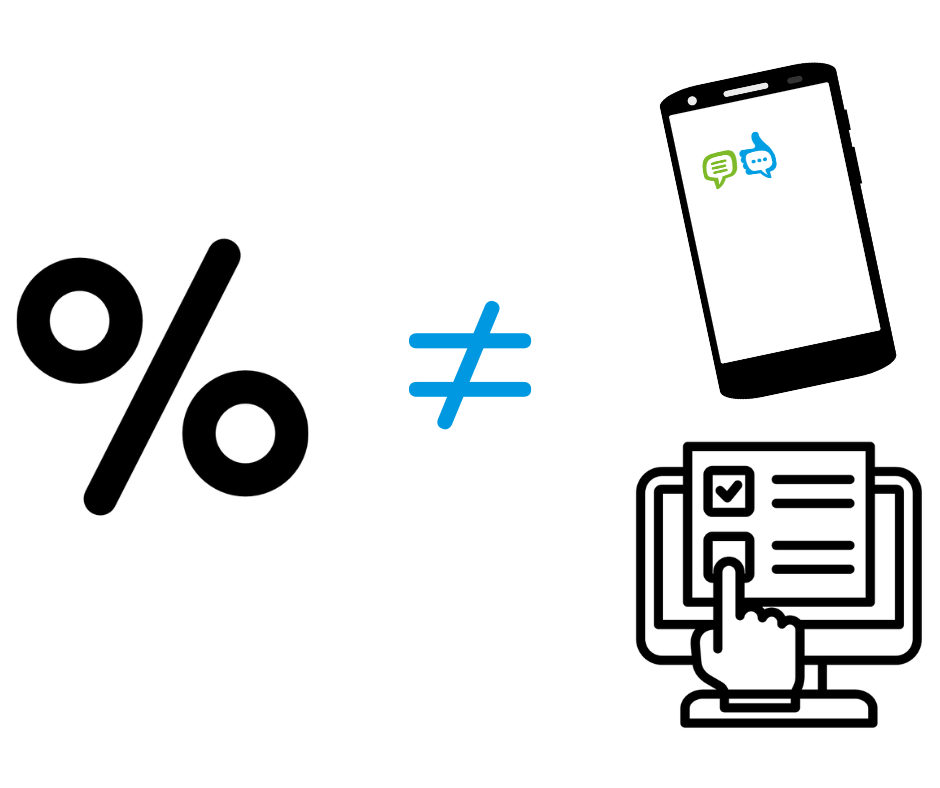How can you best measure how often children hear each language at home? This is what we investigated in our research on Language Use in Multilingual Families. In studies on multilingual children, parent questionnaires are almost always used to find out how often children hear certain languages. However, little is known about how reliable these questionnaires are despite their frequent use in research. Do these questionnaires provide accurate data to researchers?
To find out, we conducted a study with three different components:

1. First, we asked parents the following question: How often does your child hear each language at home? Parents were asked to estimate percentages that added up to 100%, for example, 40% Spanish, 50% Turkish, and 10% Dutch.

2. Next, parents completed a lengthy questionnaire. We asked them: Which people spend time with your child in a typical week? How much time does each person spend with your child? Which languages does each person speak to your child? And: how often does each person speak each language to your child? Based on the answers, we calculated how much the child hears each language on average in a week.

3. Then, parents filled out a short questionnaire 5 times a day with the following questions: Which people were with your child in the past 3 hours? How long was each person with your child? How much did each person speak each language to your child? Parents received these short questionnaires via notifications on their phones for a week. Based on the answers, we calculated again how much the child hears each language on average in a week.
The question now was: are the three estimates very similar or do they differ? And if the estimates differ, what could be the reason for this?
At this point, 102 multilingual families have participated in this research. In these families, two to four different languages are spoken at home. Together, these families speak a total of 34 different languages! We don’t have final results yet, but we’d like to share some preliminary results with you. Our results showed that generally, there are no significant differences between the estimates based on the long questionnaire and those of the short questionnaires. That’s good news: the questionnaires normally used in research thus provide reliable data!

However, our results did show more differences between the first estimate (based on the percentages) and the first and second estimates (based on the long/short questionnaire). It seems more challenging for parents to directly estimate how much their child hears each language than to do so for each individual who spends time with their child. So, when a parent of a multilingual child is asked “How often does your child hear each language?” it might be difficult to estimate accurately. If the intermediary steps needed to answer the question correctly (Who spends time with my child in a typical week? Which languages do they speak, and how often?) are not asked, such a direct question yields less reliable data. This is important information because otherwise, in future research, we might only need to ask parents one question instead of having them fill out a long and extensive questionnaire with a lot of personal information. The preliminary results show that these longer questionnaires are not unnecessary, but it’s also not necessary to provide an estimation 5 times a day. So, it’s both good and bad news, actually.

In the coming months, we will further investigate which factors might make it more difficult for parents to estimate the language input a child receives. Is it more challenging if four languages are spoken at home instead of two? Or if the amount of each language spoken varies greatly throughout the day? We will also examine for the families where (also) Dutch or English is spoken how well the three different estimates predict how many words the children know in these languages. In the next newsletter, we will be happy to tell you more about this!
